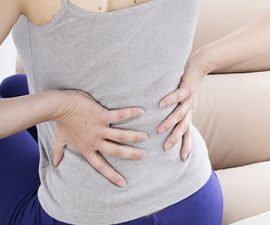… Continued …
Umbilical hernia
It is a condition in which fatty tissue protrudes through abdomen close to the belly button. It tends to affect babies, especially when the umbilical opening in their abdominal muscles seal improperly after birth. The good news, it is usually harmless – it will heal naturally by age 1 or 2, though sometimes it may take longer to close. If it doesn’t improve by age 4, surgical repair may be required.
Epigastric hernia
It is a hernia that occurs when fatty tissues push through a weak spot of the abdominal wall, typically between the belly button and the lower section of the sternum (breastbone). Though it is usually not large, you could get more than one at a time!
What else?
Other types of hernia include:
- Hiatus hernia, where part of the stomach pokes into the chest by squeezing through the weak sheet of muscle in the diaphragm.
- Spigelian hernia, where part of the bowel (large intestine or/and rectum) pushes through the belly at the side of the belly muscle, below the belly button.
- Muscle hernia, as the name implies it occurs when part of a muscle pushes through the abdominal wall fascia. Sometimes a sport injury can cause this hernia in the leg muscles.
- Incisional hernia, when fatty tissues protrude through a surgical wound in the abdominal area that hasn’t properly healed.
So, what NOT to do when you have hernia?
Since there is a chance for the problem to turn into serious, it’s much better to see a doctor without delay if you notice some of the following symptoms:
- Sudden, unusual severe pain.
- Vomiting that doesn’t improve with lifestyle measures.
- Difficulty to pass wind (gas) or stools (persistent, severe constipation).
- The bulge of hernia becomes tender /firm – or more difficult to be pushed back in.
Your doctor may refer you to hospital for surgery. The problem should not turn into serious with prompt treatment.
There are also a number of ‘what NOT to do’ checklists to help prevent the problem from worsening, these include:
What foods to avoid and what to eat?
When it comes to diet for hernia, there is actually no specific foods you need to avoid. Just make sure that your diet meets to your daily intake of calories to maintain your healthy weight, because overweight or obesity may contribute to weaken the strength of your abdominal muscles.
It’s also worth a try to watch on your dietary fiber intake. High-fiber foods (veggies, fruits, and whole grains for examples) can help relieve your constipation. On the other hand low-fiber diet can worsen your straining during bowel movement, which is bad for your hernia prognosis. Here are some constipating foods to limit:





Info for Jeremy
what do you mean jeremy?